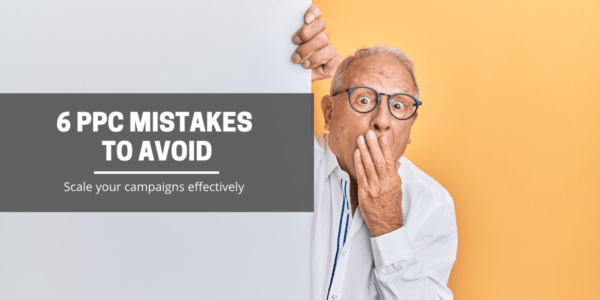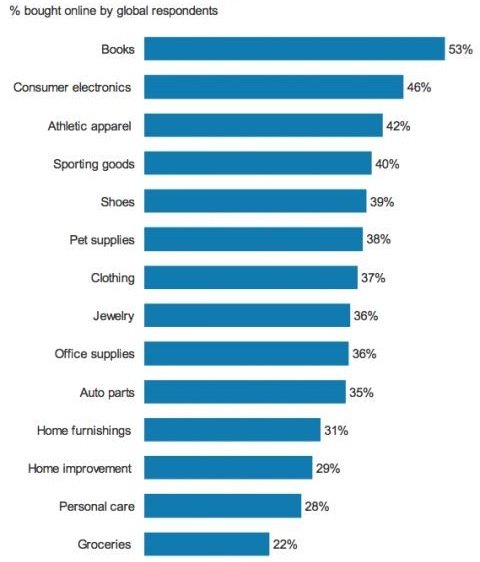Managing tons and thousands of paid campaigns is not an easy job, especially if you’re an agency and running God-only-knows how many campaigns in a single day. The brands that claim that PPC is becoming expensive and not yielding results, I would like to believe otherwise. You may have tried it, of course, but there is a magnitude of things you can do to ensure there is no slip in spends before outright rejecting the channel.
While I was auditing and reviewing the PPC accounts of my clients, I came across a lot of common PPC mistakes which ultimately lead to failed campaigns. Listing it down so that we all can make excellent use of the channel and appreciate the high intent leads that flow through.

#1 Conducting an inadequate keyword research
It all begins with keyword research. Ask the digital marketers and they would tell you – for drafting a successful paid campaign or organic strategy, this is the numero uno thing you do. Figuring out the right keywords help ensure the least burn and it becomes easier to optimize PPC ad campaigns yielding a higher conversion rate. Once you’ve figured out the right set of keywords, break them into similar themes.
One of the biggest mistakes is Putting all keywords into one ad group and wishing for a miracle. Google Ads gives preferences to ad structures that are easy to understand. Segregating gives you control over your campaign and also to optimize when need be. It also helps you with a better quality score because the ads and the keywords are tightly knit together giving you a prominent position in search, everything else constant.
If you are not sure how to separate your keywords into themed groups, you can reach out to me for a consultation.
#2 Improper bidding
The next one on the list is not bidding correctly. If the brand chooses to go ahead with an automated bidding strategy, you need to understand the algorithm needs a bare minimum of data to validate those conversions. Here I suggest, if you’re starting out a new business but have offline conversion data, feed that into the system to tell the algorithm that these mean conversions for your business. Once this is done, you’ll see your PPC campaigns performing much better. If not done, you’ll really be shooting arrows in the dark and wasting a lot of money and effort to eventually come to a situation where you don’t know what went wrong.
Frequent changes to campaigns with automated bidding strategies are also not really advisable. Any paid platform algorithm needs about 7-10 days to show your ads to the right audience. If you have ad campaigns with time constraints, it is advised to go for manual bidding or enhanced CPC campaigns. This way you’ll have control over the budget and the changes you make are almost instant.
#3 Neglecting negative keywords
I cannot emphasize the effect of neglecting negative keywords. With Google having a broad match as the default attribute, spills here are higher and faster. It’s understandable that it’s a little hidden inside the Google Ads platform and hence gets skipped. However, a little effort to ensure you’re not wasting your money on negative keywords goes a long way. The long-term effects will be awesome! Imagine, you’re spending money on irrelevant traffic coming onto the website. These users either bounce off, or worse stick around doing nothing. What happens next? You guessed it right, these users will be shown display ads if the retargeting campaigns are on. If they ignore – good for you, if they don’t, they just cost you a couple of more bucks.
#4 Disregarding important features
One of my colleagues once asked me to stick to using Standard Ads as we have more control. Guess what my reaction was? The platform is trying so hard to ensure users are shown headlines and descriptions dynamically, do you think trying to counter them will work? Erm no! We should try and use the newly launched features on the platform to ensure we make the most out of the spends. Be it using Responsive ads by giving Google algorithm a chance to optimize campaigns on our behalf based on the CTR, or using features like Ad extensions and Ad scheduling. Ad extensions, in my opinion, are one of the best ways to drive click-throughs to your core pages. The very fact that you get more real estate on the Search Engine is worth trying out.
Ad scheduling is one feature that is often overlooked. One of the justified reasons is when your campaigns have just started and you don’t have a lot of metrics to be sure what time works the best. If you have good metrics and still are ignoring this, my friend, you’re losing out on a lot of potential to optimize.
#5 Choosing a Landing page when the website might be a better choice
A lot of Digital Moguls will tell you otherwise. They will ask you to create landing pages for different campaigns, primarily for these 2 reasons:
- Users are less distracted.
- You define the journey for the customer.
But, what happens if the user knows very little about the product he is expected to buy. He would still go to the homepage, or product page to know more. Such navigation, to be honest, is even more confusing and a long way from a conversion standpoint. Most of the time, the user will just bounce on grounds of lack of information on the landing page. There are tools you could use to come up with Conversion Rate Optimization strategies to understand which page might be best for you. If the tool sounds expensive, there are free tools like Google Optimize that you can use for basic AB testing.
If I am confused as to which landing page will result in higher conversion, I usually run experiments and then take a call, rather than just a gut feeling. In case I don’t get a concrete answer or a validation to my hypothesis, I let the experiment run longer rather than randomly picking a winner. From my experience, sometimes for broader keywords, your website does a better job than a landing page. The ad campaigns you draft need to match with the content on the landing page, intent-wise and otherwise for you to get a good quality score. And then we all know a good quality score means higher CTR and better conversion rates. So you see all of this is connected.
#6 Striving for 1st position instead of ROI
A big mistake that a lot of PPC experts make is trying hard to get that topmost position. And in that process, end up wasting money in the bidding wars resulting in poor campaign conversions and exorbitantly high spends. I have seen campaigns where the CTRs were good even for relatively lower positioned ads. And sometimes conversions from these campaigns are much higher. This is why it is extremely critical to fully understand the performance of the campaigns from an ROI standpoint, rather than just focusing on the 1st position. Brands that have money to spill can still take this risk. However, if yours is not one of those brands, it makes sense to view the holistic picture of the ticket value of generated leads and then take a call on whether to really really increase the bids.
Picture this scenario now, one of your competitors is bidding on one of your best-performing keywords, does it mean you give away that spot. The simple answer is no. Considering there are enough ad copies to the A/B test, and your target audience is highly relevant for that keyword, you should look at increasing keyword bids first. Check back the campaign performance and if the budget is getting exhausted is when you should increase your budget.
Hope this helps you draft the best-paid campaigns and set your campaign up for success. If you’re figuring out which one to choose SEO vs PPC, this article gives you a perspective.
Please feel free to connect with me to discuss PPC strategy here.
This post first appeared on Go Digital With Saya.
Tags: campaign ppc SEOYou might like reading:

Online Shopping Portals: A Hit In the Present Era
With the advent of technology, Internet has become a part & parcel of our everyday life. Loads of information, statistics are available at one click. Not only information, the dot com boom also brought along with it a huge number of other services that, in the past, required us to spend a considerable amount of time – sending messages from […]

SIBM Pune Final Placements 2019-21: Average CTC of INR 19.56 Lacs
SIBM Pune has successfully completed the Campus Recruitment Programme 2020 for the MBA Flagship batch of 2019-21. The institute steered through the challenging times by adapting to the changing needs and modes of recruitment. The institute’s strong student-driven culture, structured academic rigour and firm corporate engagement model have ensured the students’ excellence, thereby, securing them premium roles across top organizations […]































